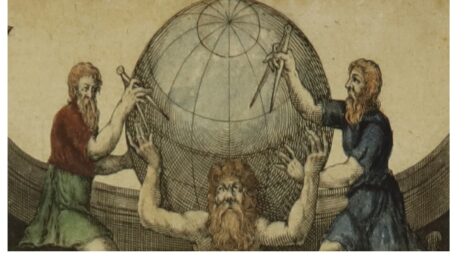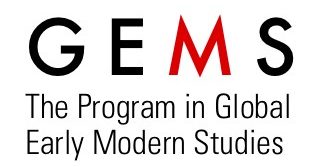
April 1 | NYU MARC lecture by Margaret Small
Please join us this Friday!
April 1 at 12:30 pm EDT via Zoom:
Margaret Small (U. Birmingham, UK)
Breaking boundaries;
the sixteenth-century renaissance,
the classics and the limits of the knowable world
About the event:
In the fifteenth and sixteenth centuries Europeans used a new understanding of Greek and Roman geography to reinterpret the nature of the inhabited world as a connected space rather than a confined place separate from the greater portion of the globe. Until this period, European geographical thought had been dominated by Greek and Roman ideas which held that only a small portion of the world (the northern temperate region of Eurasia) was inhabitable. Beyond it lay realms of snow and fire to north and south, and endless unnavigable reaches of ocean extending beyond the farthest shores of Asia and Europe. Bordering these regions were realms of monsters and marvels, nobody could or should defy the limits of this inhabitable world. To do so would be an act of hubris that courted disaster. So real did these mental limits to human inhabitation and knowledge become that they dominated European geographical theory for two millennia. Yet the classical writers also theorised that within the limits of the inhabitable world, the oikoumene, the world worked in a perfect balance of parts in which no single region could have everything. The fifteenth and sixteenth centuries, coinciding with the Renaissance and the renewed familiarity with the classics in which these ideas found their origin, saw both the challenging of these classical theories about the limits to inhabitation and a conscious reinterpretation of them. The mental and physical boundaries were shattered and a new geography, still founded on classical ideas was ushered in. This geography was one in which Ocean was transformed from a boundary to a means of communication, and the idea of no land having everything became a clarion call for perceiving the world as a connected space in which all of it was designed for human inhabitation and exchange. A transformation in geographical thought was essential to laying the groundworks for globalisation, but ultimately much of this framework for the new geography could be traced back to the classics.
About the speaker:
Margaret Small is a Senior Lecturer in Early Modern History with a focus on European exploration and colonisation in the sixteenth century at the University of Birmingham (UK). Her primary research areas are in the history of geography and the history of exploration.
Attendance information:
To RSVP for this event, please click here. Registration is free and open to the general public. Only registered attendees will receive Zoom link via email prior to the event. You can download Zoom here.
We hope to see you virtually on Friday, April 1, 2022 at 12:30 pm EDT!




